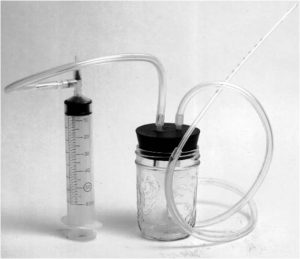‘Being only Gender Sensitive is Not Enough’, says Dr Julia Ahmed
“Suppose a Project Manager has given a task to the Field Coordinator to select field staffs for a week-long training on ‘report writing’. The Manager highlighted that the trainees should be in equal number of male and female staff. Later, the Field Coordinator informs the Manager that she is unable to send women as they have children and there is no one to look after them while they will be in the training.
In the above situation, if the Project Manager is only gender sensitive, he/she will regret the fact, and carry out the training without ensuring female equal participation.
But being gender responsive and gender sensitive as well, the Project Manager will dive deeper into the problem finding out how best to support women for their participation in the training. She/he will look into the budget, talk to the supervisor, and reallocate extra budget so that women can bring attendants with them for taking care of the children while they are in the training.” – Dr. Julia Ahmed, Independent Consultant
Dr Julia Ahmed is an Independent Consultant who is currently working with the Pathfinder International and the Oxford Policy Management.
In this interview, Dr Ahmed talks to Share-Net Bangladesh about gender, contraception, family planning, menstrual regulation, adolescent strategy and way forward to SRHR in Bangladesh.
Gender Integration in Family Planning
Dr Ahmed is involved in conducting a series of TOT (Training for Trainers) for gender integration in the national Family Planning (FP) program for the staff of DGFP (Directorate General of Family Planning) and DGHS (Directorate General of Health Services) with Pathfinder International. She highlights that a significant connection exists between gender equity and how the Family Planning program is designed. The current Family Planning Program by default is gender insensitive. It is Maternal & Child Health (MCH) focused. In this structure men do not feel comfortable accessing these facilities; the whole design gives a feeling that this service facility is only for women.
This TOT is focusing on how to make the health facilities more gender friendly highlighting both women’s and men’s priorities. The design of this training is TOT pool building with a mentor-mentee concept. With this the major focus is gender mindset building with required knowledge, attitude and skills; aiming for ensuring a gender friendly working environment towards the goal of universal access to Family Planning services.
Menstrual Regulation (MR) in Bangladesh

Picture: Wikipedia
Even though Menstrual Regulation program works under the Director General of Family Planning Service, it should not be seen as a Family Planning method. It is a back-up support for unintended pregnancy management.
Dr. Ahmed mentions that while MR Service plays a huge role in the reduction of maternal mortality in Bangladesh, we do not mention about the contribution of this important service (MR) when we talk about the success stories of the maternal mortality decline in Bangladesh.
Menstrual Regulation with Medicine (MRM)

Picture: Planned Parenthood
Dr Ahmed explains that in terms of concept ‘menstrual regulation with medication’ is seen as a simpler method. However, in terms of experience, this method has not been as simple as it seems. The users are usually not aware of how to use these pills, and in most cases, the instructions are not clearly given in the right way. A point to be noted is that these pills are easily available from pharmacies. This leads to easy accessibility without proper instructions. If we want to get satisfactory results from this method, we have to ensure standard compliance issues engaging key stakeholders.
Prospect of Sexual and Reproductive Health and Rights (SRHR) in Bangladesh
Dr Ahmed mentions about the role of ICPD (International Conference on Population and Development) in making SRHR visible in policies and programs along with the five year investment plan of MOHFW (Ministry of Health and Family Welfare) since 1995.
In this journey, the recent launching of the national Adolescent Health Strategy (2017 to 2030) with a focus in A-SRHR is another important milestone.
She highlights that during the last 12 years a momentum has been seen in making SRHR visible in the development sector of Bangladesh. In this regard, she spoke about the creditable role of the Embassy of the Kingdom of the Netherlands, Bangladesh for their continued support addressing neglected SRHR issues in close relevance to women and adolescent girls affecting their daily lives. At the same time, there are interventions from IPAS Bangladesh engaging DG FP and DG HS, Health NGOs and private sector for prevention of maternal deaths from unwanted pregnancies.
National Adolescent Strategy Development
In relation to her work with Oxford Policy management, she shares that an intensive work is in progress that highlights five thematic areas: Health & Wellbeing, Education, Protection, Participation, and Transition to Work.
In the aforementioned thematic areas, a technical committee and an advisory committee with the representation from relevant ministries are working with the support from MOWCA and UNICEF in overall coordination and management.
Challenges and way forward
On SRHR challenges she mentions that apart from high child marriage, adolescent fertility, adolescent pregnancies, unintended pregnancies there are issues like- influence from the prevailing gender harmful and gender blind situation, lack of SRHR knowledge and on the top of everything, the use of various religions for vested political reason to harm SRHR progress in Bangladesh.
About way forward she thinks it is high time that key stakeholders: government, private sectors, NGOs, CSOs, academia, UN, donor agencies, all come together and agree to invest on respective SRHR operations of the 5 year investment plan made by the Government of Bangladesh. This will allow focusing on resource mobilization and enhancing quality issues, capacities, monitoring, mentoring/supportive supervision from one place complimenting to the implementation of policy directives of Bangladesh government in alignment with the ICPD POA and SDG goals on universal access to SRHR.


